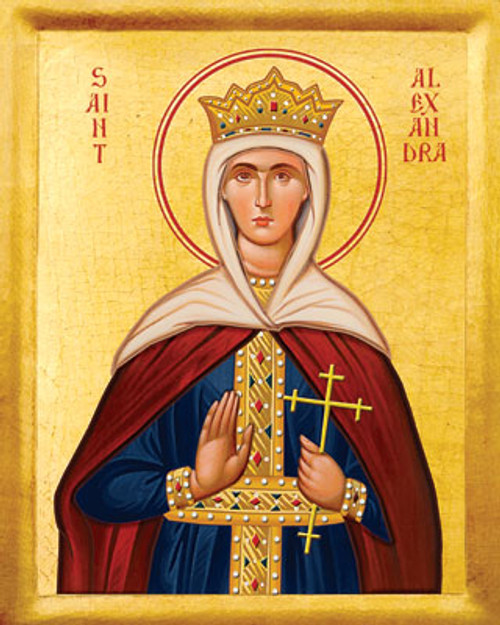Commemorated December 14
Saint Carloman, also known as Carlomanno, was born in the year 707 as the eldest son of Charles Martel, the famous ruler and military strategist who played a decisive role in the Frankish campaigns against the Muslim forces in Europe. Carloman's father eventually became the de facto ruler of the Frankish kingdom, which encompassed territories in present-day Germany, France, Belgium, and the Netherlands. In 741, after the death of his father, Carloman ascended to the throne of Austrasia, one of the three divisions of the Frankish kingdom. As king, he proved to be a wise and just ruler, demonstrating great care for the welfare of his subjects, particularly in matters of religion and education. Blessed with a deep sense of piety, Carloman sought to promote the growth of the Catholic faith and the spread of monasticism. One of his notable contributions was the establishment of monasteries in important locations. Carloman supported the founding of the famous monastery at Fulda in Germany, which would eventually become one of the most influential centers of learning in Europe. Additionally, he was instrumental in the establishment of the monastic communities at Lobbes and Stavelot in Belgium. These monasteries not only provided spiritual guidance to the local populace but also served as centers of education, preserving and disseminating knowledge during a time when learning was scarce. Carloman's devotion to the Christian faith extended beyond mere patronage of monasteries. He actively supported the missionary work of Saint Boniface, the renowned English missionary and bishop, who played a significant role in the Christianization of Germany. Carloman provided both financial and moral support to Saint Boniface's endeavors, enabling him to evangelize and establish numerous churches and monasteries throughout Germany. Later in life, Carloman received spiritual guidance from Saint Boniface that profoundly impacted the trajectory of his life. On the advice of his trusted confidant, he made the momentous decision to abdicate the throne in favor of his brother, Pepin the Short, who would go on to become the first Carolingian king of the Franks. Carloman took this step to devote himself entirely to the service of God, withdrawing from the affairs of the world. Choosing a life of solitude and contemplation, Carloman embraced the monastic vocation. He first sought refuge on Mount Soracte in Italy, where he engaged in humble tasks such as working in the kitchen and tending to the needs of the community. This period of humble service allowed him to develop a profound sense of humility and detachment from worldly pleasures. Later, Carloman sought a more secluded monastic life and moved to the renowned monastery of Monte Cassino in Italy. There, he embraced a simple life, working as a shepherd and dedicating himself to prayer, meditation, and manual labor. This humble and ascetic existence enabled him to grow closer to God, finding solace in the simplicity and discipline of the monastic routine. Saint Carloman passed away peacefully at a monastery in Vienne, France, in the year 755. Despite his remarkable life of devotion and selflessness, he was not formally canonized by the Catholic Church, as the process of canonization had not yet been established during his lifetime. However, his sanctity and contributions to the faith were widely recognized, leading him to be venerated as a saint even before the formal canonization process existed. Today, we honor the memory of Saint Carloman on August 17th, reflecting on his selfless dedication to the growth and propagation of the Catholic faith. His example serves as an inspiration for all believers, encouraging us to prioritize our spiritual calling over worldly ambitions and to lead lives of humility, service, and devotion to God.







